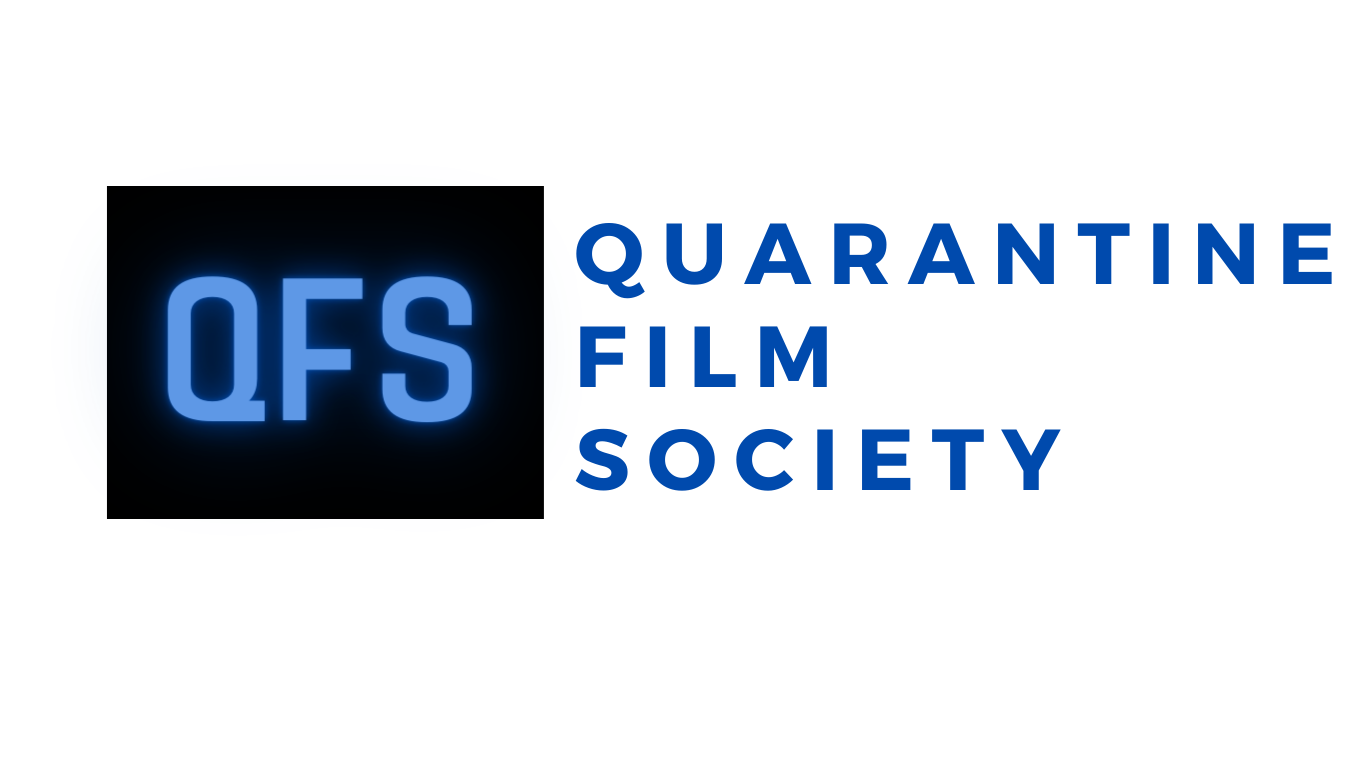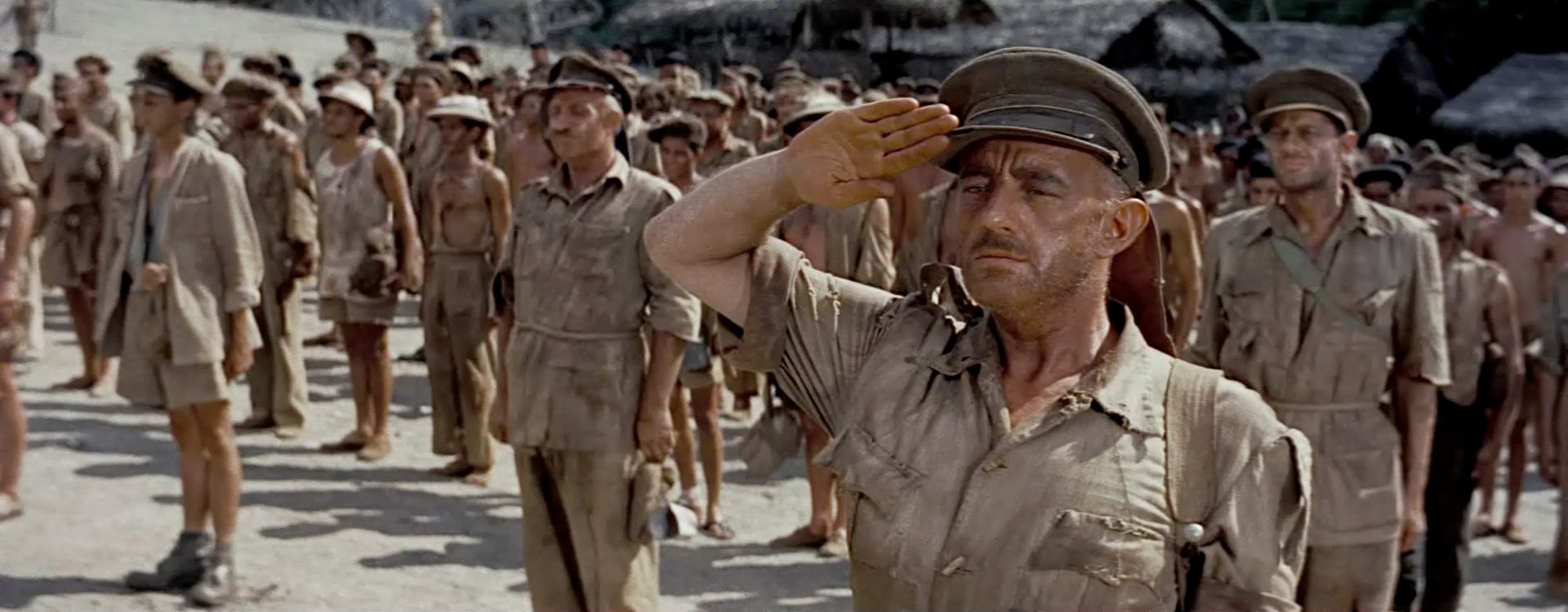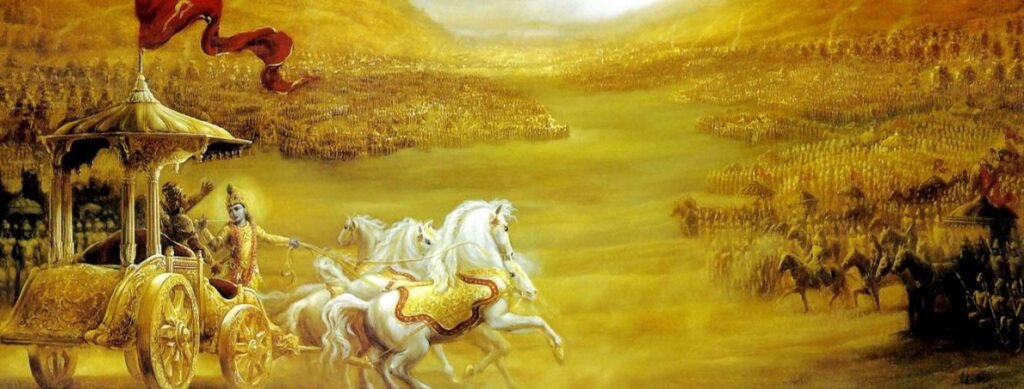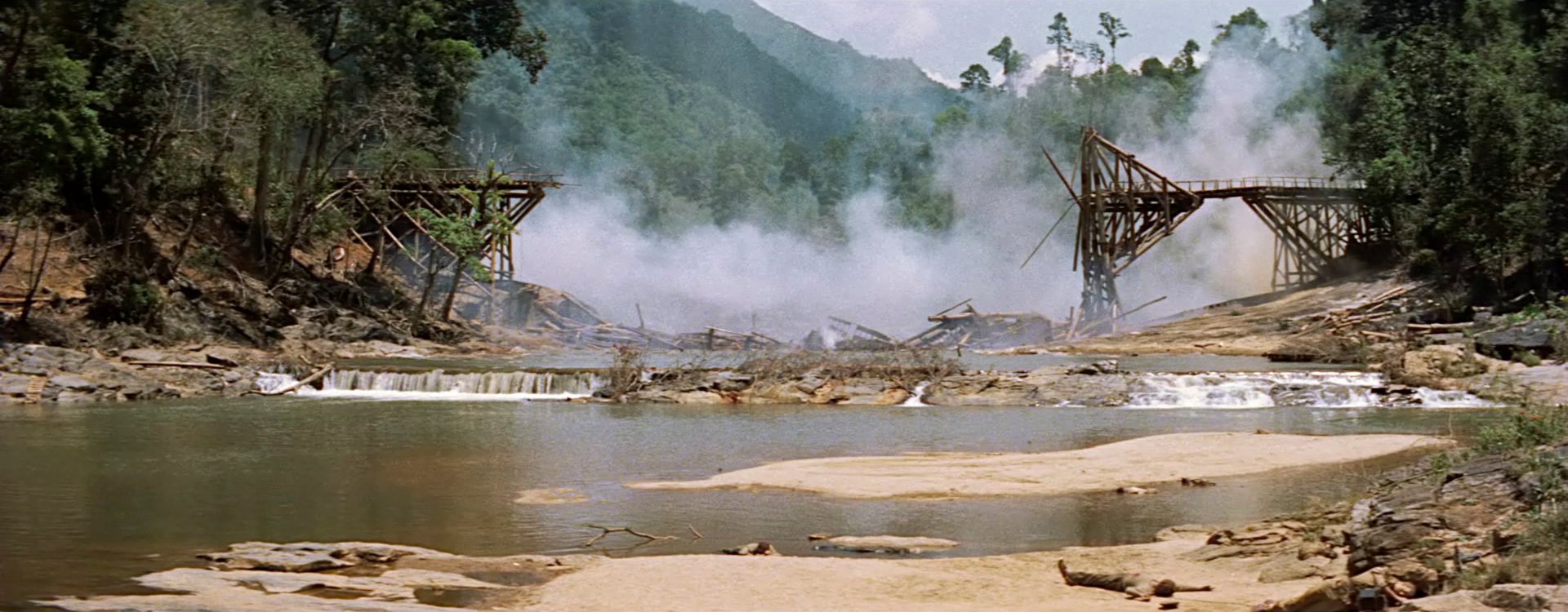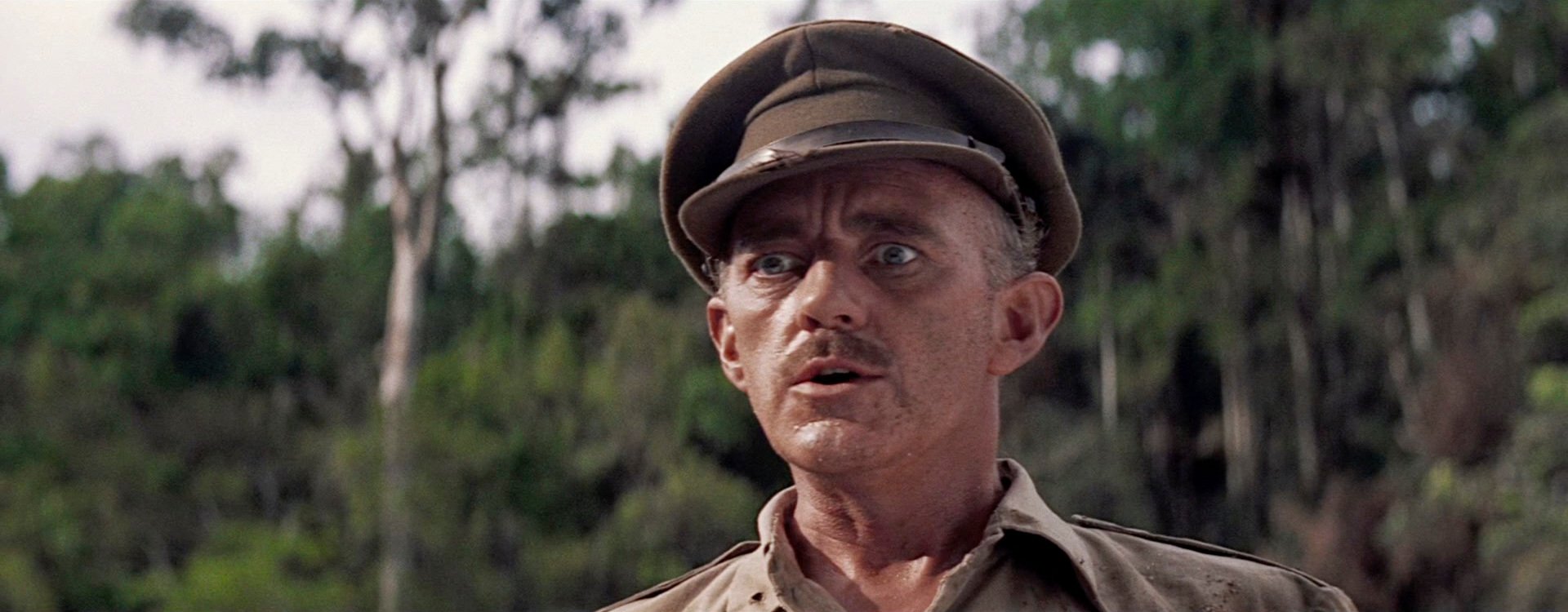The Bridge on the River Kwai (1957)
QFS No. 137 - The invitation for April 24, 2024
Happy Fourth Anniversary!
For our four-year anniversary of the Quarantine Film Society, we decided to select an epic by the great David Lean. Yes, it took us four years to get to a David Lean film, and for the most part it’s because I’ve seen most of the epic classic ones. Lawrence of Arabia (1962) remains one of my favorite films of all time and we could easily have selected it to commemorate our four years of watching and talking about movies.
But instead, I picked what is my second favorite Lean film, The Bridge on the River Kwai. I’ve seen it in the theater once and probably half a dozen times in total. (I have somehow managed to watch Lawrence of Arabia about six times in the theater over the last 20 years in LA, a personal achievement of which I'm quite proud.)
One of the things I love about David Lean and why I love his filmmaking is that he makes the epic personal. He crafts giant films on huge tapestries during times of war or conflict – but they are, at their core, character dramas. Lawrence of Arabia is, among other things, an exploration of a man’s identity, of living in between two realities, all set against the World War I proxy conflicts between Turkey and the Arabian kingdoms. A Passage to India (1984) examines race, imperialistic hierarchy, and tolerance during the British Raj rule of India. Doctor Zhivago (1965) is set during the Russian Civil War and beyond but concerns itself mainly with the love story between the two protagonists.
Set during World War II in Burma, The Bridge on the River Kwai is a fascinating tale of duty, of an almost sacred commitment to a task. The film questions whether that task is moral or not. We will discuss this further when we chat about the film, but I’ve always be interested in what is known in Hindu philosophy as dharma – one’s sacred duty – and The Bridge on the River Kwai manages the best portrayal of the concept I’ve come across in Western cinema through Alec Guiness’ character. Again, here the film is not about the war. But war surrounds the story. The epic is backdrop for the personal.
Speaking of epic, just a brief reflection on pulling off a four-year run of Quarantine Film Society. Sure, “pulling off” wasn’t really all that much doing. Simply (a) repeated unemployment of yours truly, (b) stubbornness, (c) an eagerness to write mini-film essays nearly weekly and (d) have at hand a bunch of maniacs willing to watch a film and get on an online video phone to talk about it.
These four years I’ve watched more movies than perhaps any other four year stretch of my life except perhaps for college. I’ve greatly expanded my working knowledge of the craft of cinema, American film history of the 20th Century, and have gained a greater appreciation of film as an art form – in that it can be interpreted less like a sentence in a book and more like a painting in a gallery.
For all of this, I thank you. I hope to keep this up for as long as I can. Join me to discuss The Bridge on the River Kwai as kick off our next four years of world cinema domination.
Reactions and Analyses:
Who is the antagonist in The Bridge on the River Kwai? For a film that has a lot of traditional action elements, it is not an action film in the classic sense. Or a war film in the classic sense, for that matter.
This question, though, of who is the antagonist or “the bad guy” is an interesting one and was quickly brought up by one member of the group. He argues that it’s actually Colonel Nicholson (Alec Guinness). He’s a maniacal man hellbent on living up to his own moral code, to the point of collaborating with who is his enemy.
This is a fascinating take on the film and several QFS members felt similarly. Nicholson, is governed by a code and cannot waver from it. If anything, his counterpart Colonel Saito (Sessue Hayakawa), who runs a prison work camp, is downright reasonable by comparison. Nicholson nearly sacrifices not only himself but his officers on principle. He nearly completely and totally collaborates with the enemy, very nearly (inadvertently) foiling the covert mission by his own government.
Consequently, several QFS members felt that this makes him a merciless sociopath. Sure, I can see that. But also, I’ve always seen him as totally and completely tied to his duty. As I wrote in the invitation to The Bridge on the River Kwai, for me Nicholson evokes the philosophical concept of dharma – which can be translated to spiritual duty, a duty that’s beyond mere obligation but something that’s deep inside of you that you have no choice but to fulfill. There are characters who appear in Hindu mythology who embody the concept, and at times they are unable to do anything other than their duty. They are, as I’ve heard referenced “bound to their dharma.” Rama from the epic The Ramayana has to obey his elders, his father, even when doing so triggers off a curse that leads to his father’s death. (There’s more to it than that but for simplicity’s sake, I’m boiling it down.)
Also, in the other Hindu epic The Mahabharata, the warrior prince Arjuna is on the eve of battle against his family and is paralyzed by inaction. Krishna, who is Lord Vishnu incarnate on earth, guides Arjuna through this crisis by reminding him that his duty is as a warrior for his people, and a warrior fights. Even when it’s going to be against cousins and uncles who he knows and loves – because he is on the side of righteousness. (Again, this is massively oversimplifying the Bhagavad Gita but go with me here.)
Now, I’ve always felt that Nicholson embodies this concept better than almost any character I’ve seen in a Western film that isn’t inspired by Eastern philosophy directly. And I still feel that way, but I noticed something different this time that should’ve been obvious to me before – this is an antiwar film. Nearly every war film is at its core an antiwar film. But The Bridge on the River Kwai is perhaps even darker. It’s not only addressing the cruelty of war, it criticizes the very necessity of war – and of the British Empire. The bridge is more than a bridge - it’s a symbol of colonialization and empire.
QFS members pointed out the arrogance of Nicholson, claiming their British engineers are superior intellectually to the Japanese ones, their workmanship and organization the model of the world. Some in our group couldn’t really tolerate that, which is totally valid. But this arrogance is entirely David Lean’s point. It’s this arrogance, this expressed superiority – that it’s all nonsense. And, in the end, futile and destructive. Like the British Empire, they’ve gone in with what they believe to be good intentions, but leave behind destruction, ruin, and death in their wake.
Or “Madness,” as the medic Major Clipton (James Donald) says in the last line of the film. And after the destruction, Lean leaves us with a final shot, an aerial pullback, wide, from the sky, with a jaunty British military tune. This is not accidental, and it’s an acerbic, biting final blow against the British. He could’ve chosen somber or desolate music. But the final tune has the flavor of cynical sarcasm to it.
And yet, it’s Nicholson, bound by dharma, who must build the bridge and can only do so the best he can. He can’t even comprehend what others are telling him when they say to not build it so well. There are many telling exchanges in the film, but this one to me stands out as emblematic of what I mean:
Major Clipton: The fact is, what we're doing could be construed as - forgive me, sir - collaboration with the enemy. Perhaps even as treasonable activity.
Colonel Nicholson: Are you alright, Clipton? We're prisoners of war, we haven't the right to refuse work.
Major Clipton: I understand that, sir. But... must we work so well? Must we build them a better bridge than they could have built for themselves?
Colonel Nicholson: If you had to operate on Saito, would you do your job or would you let him die? Would you prefer to see this battalion disintegrate in idleness? Would you have it said that our chaps can't do a proper job? Don't you realize how important it is to show these people that they can't break us, in body or in spirit? Take a good look, Clipton. One day the war will be over, and I hope that the people who use this bridge in years to come will remember how it was built, and who built it. Not a gang of slaves, but soldiers! British soldiers, Clipton, even in captivity.
The incredible build up is all worth it – the long film, the (perhaps) extraneous William Holden (as “Shears”) sequences, the near suicide of Hayakawa – it is all worth it for that moment when Nicholson discovers that it’s his fellow British soldiers who are trying to blow up the bridge. As if awaked from a trans, Nicholson says What have I done? Truly one of the greatest epiphanies ever filmed, both in terms of performance and payoff. Nicholson remembers that the bridge was his duty, but there was a greater one and it was for the British Army.
A final note – I thought I had this film figured out. It has remained in my memory as one of my formative movies. But rewatching it and discussing with the QFS group has introduced even more complexity into the story and the themes. Once again, the mark of a truly great work of art and craft by one of the masters of the medium.
